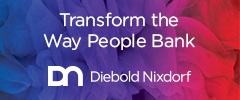
The Hidden Cost of Cash
Wednesday, June 07, 2023
View ShowroomCash, in the form of physical currency and coins, offers numerous advantages. It remains impervious to hackers and doesn't require specialized hardware or software. Retailers aren't burdened with fees, and consumers don't face exorbitant interest rates. Cash enjoys widespread acceptance and provides anonymity.
Despite facing competition from credit and debit cards, mobile payments, and cryptocurrencies, paper money has managed to hold its ground for several compelling reasons. It is often seen as the preferred option when money is tight, benefiting the poor and small businesses operating on narrow margins.
preferred option when money is tight, benefiting the poor and small businesses operating on narrow margins.
Unfortunately, the existing system is witnessing a disorderly and slow abandonment of cash, which is having adverse effects. In today's market, we observe a misalignment of incentives between individual banks aiming to reduce costs by phasing out their physical infrastructure, such as brick-and-mortar branches and ATMs. However, this approach overlooks the needs of millions of individuals and thousands of communities that heavily rely on these essential services.
In countries like Mexico, Egypt, and India, who primarily rely on cash for their economies, the use of cash imposes several social costs on individuals, particularly the poor, as well as on businesses and the government.
Professor Pasquale Sgro, from the Deakin University in Australia highlights the apprehension surrounding relinquishing physical coins and notes in exchange for a system where governments can monitor every transaction and movement. The notion of such surveillance is unsettling. Paul Harrison, a senior lecturer in Deakin University's School of Business, concurs with this sentiment. He has extensively studied the adverse effects of cards and other cashless payment options on our financial control.
Harrison emphasizes the immediate clarity we experience when making a cash purchase. We know the exact cost of the item and are aware that the corresponding amount of money is no longer in our wallet or purse. However, when we employ a plastic card, we are engaging with something abstract. In an article for The Conversation, Harrison states, "This loss of control over purchasing power, privacy, and data hardly qualifies as a convenience." Professor Sgro further emphasizes that the convenience of going cashless comes at the expense of relinquishing control over our financial power, privacy, and personal information.
The prevalence of cash usage in developing economies raises questions about its costs and implications. Through extensive research in Egypt, India, and Mexico, McKinsey have examined the behaviour surrounding cash transactions in emerging markets across different continents, each facing unique socio-political and economic challenges.
In these countries, there is a significant reliance on cash as the primary means of exchange, with limited adoption of alternative payment systems. For instance, in Egypt, only 10% of adults possess a bank account, and less than 2% own a credit card. Consequently, it is not surprising that a staggering 94% of financial transactions are conducted in cash. The political instability in Egypt further compounds the situation, as it raises uncertainties about the future of financial institutions, dissuading consumers from embracing formal banking services in the short term.
India, according to McKinsey, has approximately 60% of its adult population unbanked. The country is also characterized by a high reliance on cash transactions and a prevalent use of gold as a store of value. Cash usage, as a percentage of GDP, has been steadily increasing by about 2% over the past two decades, potentially driven by concerns surrounding inflation.
In Mexico, studies conducted by MasterCard Advisors indicate that 53% of consumer payments are cashless. However, this proportion has remained relatively static from 2005 to 2011, despite the country's economic growth. One reason for this phenomenon is the significant portion of transactions that go unrecorded due to the influence of drug cartels in the country.
While each of these developing economies presents its own unique challenges, the reliance on cash comes with various consequences. Limited access to formal financial services and the dominance of cash transactions hinder economic development and financial inclusion. Moreover, the unrecorded nature of certain transactions, particularly in Mexico, has implications for transparency and taxation.
Understanding the costs and complexities associated with cash usage in developing economies is essential for policymakers and stakeholders seeking to foster economic growth, financial inclusion, and effective governance. It is crucial to explore avenues that promote alternative payment systems and address the underlying factors contributing to the prevalent reliance on cash.
Additional Resources from ATM Industry Association
- 5/1/2024 - ATMIA: The Best of April
- 4/30/2024 - Less Impressed, More Involved
- 4/26/2024 - Time to Take Action! Support the Crime Bill - We Need You!
- 4/23/2024 - ATMIA Unveils Strategic Collaboration with Reconnaissance International to Elevate Intelligence & Networking Services to the ATM & Currency Industries
- 4/21/2024 - Fight Against Cashless Economy:
- Show All ATM Industry Association Press Releases / Blog Posts



























